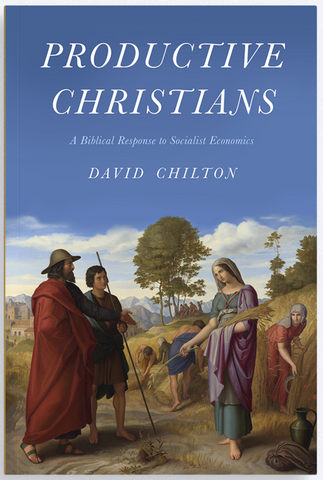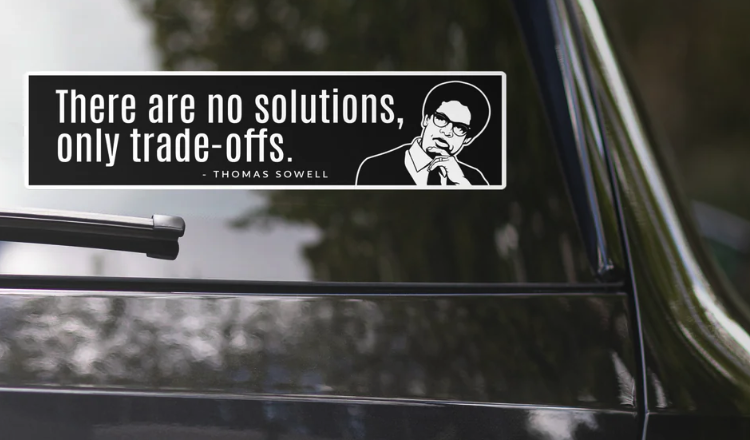Gary discusses the economic concept of tradeoffs. Thomas Sowell wrote about this years ago and it’s something that liberals do not understand.
Because man is created in God’s image, he is an innately religious being: every aspect of his life will reflect his relationship to God. Man’s culture, therefore, is necessarily religious and covenantal, as Henry Van Til has stressed: “Since religion is rooted in the heart, it is therefore totalitarian in nature. It does not so much consummate culture as give culture its foundation, and serves as the presupposition of every culture. Even when faith and its religious root are openly denied, it is nevertheless tacitly operative as in atheistic Communism. A truly secular culture has never been found.”
The religious basis for the culture always bears fruit in the economic sphere. Long-established habits and traditions do not change as quickly as does theoretical speculation. When the religious basis of a culture is transformed, it takes time for that change to work itself out into the cultural life. The religious shift in the Renaissance period, separating nature from grace, produced the statism of the Reformation era; the Reformational return to the principles of biblical law eventually worked out in political liberty and free enterprise under the rule of law; and the Enlightenment saw its fulfillment in the essentially pagan politics of revolutionary statism and anarchy. Culture is produced by religion, and to some degree lags behind it… The laws of the Bible work to restrain both statism and anarchy. It must be admitted that many modern “capitalists” think in terms of Enlightenment principles; hence, the tendency toward statism among Conservatives, and towards anarchy among Libertarians—both groups trying to base the product of Christianity upon pagan principles, and thus both groups doomed to failure.
The Christian framework of freedom within law cannot be simply imposed upon a heathen culture. The bare economic structure of capitalism cannot be imported into a culture successfully. We cannot talk about the mere fact that India needs free enterprise and capital investment. The issue is: “Why does India resist freedom? The answer is to be found in India’s religious and philosophical persuasions.

Productive Christians in an Age of Guilt Manipulators
Socialism has a perennial appeal, and Christians seem to be particularly susceptible to its allure. The modern evangelical resurgence of interest in social justice, critical race theory, gender equity, and woke idealism are clear evidence of this. But, for all its aspirations for justice, equality, and fairness, the rhetoric of socialism is typically marked only by high sounding moralisms stuffed with cliché, guilt, pity, bluster, and resentment. In Productive Christians: A Biblical Response to Socialist Economics, David Chilton tells us why. He not only exposes the follies and fallacies of socialism, but he also systematically outlines the biblical alternative — an alternative that lays the groundwork for real justice, progress, prosperity, and freedom for the rich, the poor, and everyone in between.
Buy NowGary discusses the economic concept of tradeoffs. Thomas Sowell wrote about this years ago and it’s something that liberals do not understand. Every solution has consequences, and they may be good, bad, or a combination of the two. Liberals demand solutions without ever considering the tradeoffs.

